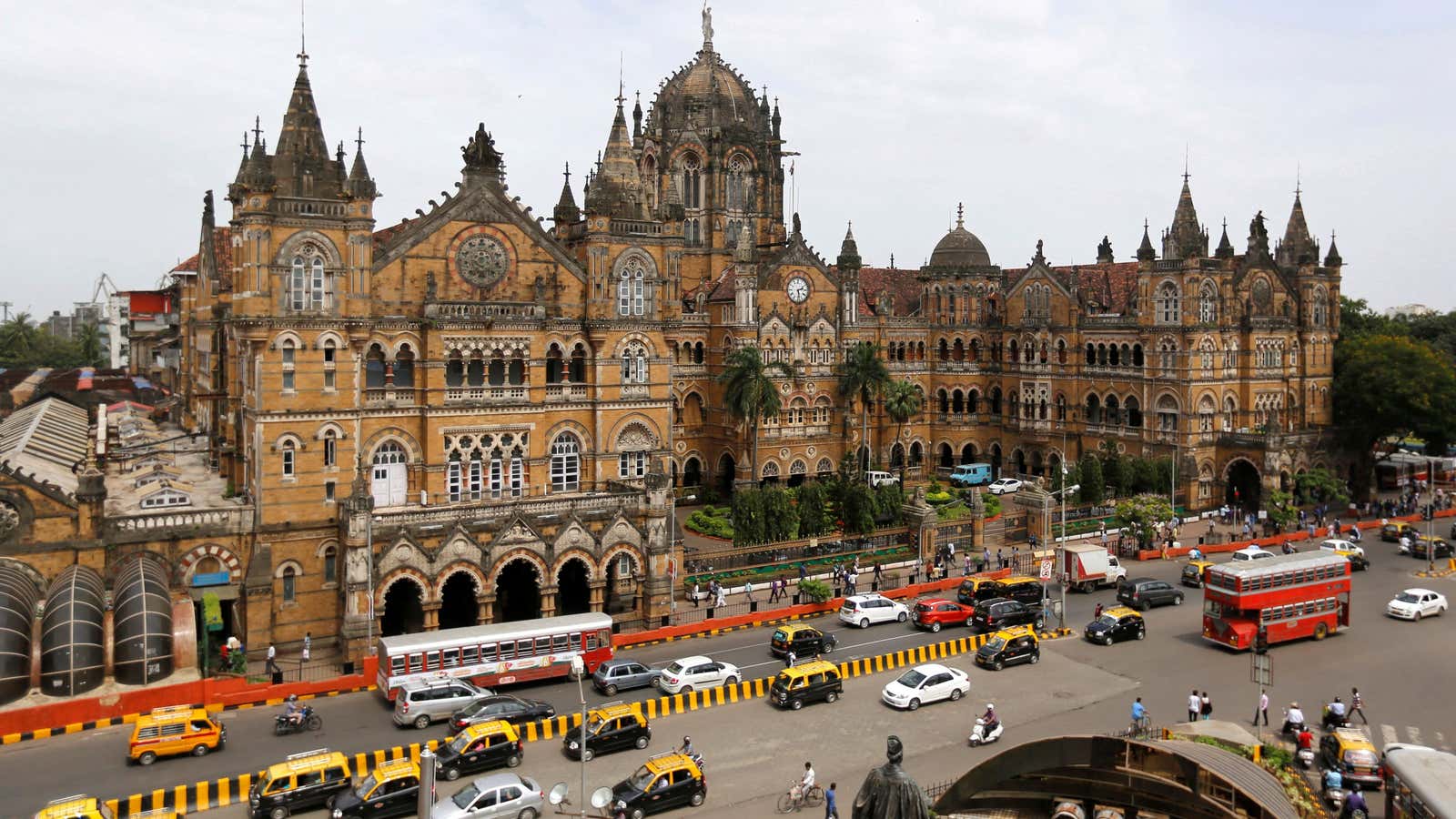New-age taxi-service providers are building up a fruitful relationship with Indian Railways.
Besides providing last-mile connectivity to train passengers, firms like Ola, Uber, and Meru are turning into a growing source of revenue for the state-run transporter as they snap up prime parking slots outside the country’s many busy stations.
Indian Railways earned an estimated Rs20.93 crore (around $3 million) in parking charges alone from app-based cabs in the financial year ending March 31, 2019, Rajen Gohain, minister of state for railways, said in the Lok Sabha, India’s lower house of parliament, on Feb. 13.
While that’s just a small sliver of the Railways’ total revenue of Rs1.68 lakh crore (financial year 2017), it indicates a huge potential, given India’s volume of railway passengers.
For instance, commuter trains in the country’s commercial hub of Mumbai alone ferry over 7.5 million people daily. The passengers then usually hop on to buses, auto-rickshaws, or taxis—mostly shared.
In the past year, though, they have been given the option of calling taxi-service providers, too.
Since April 2018, the Railways has allowed cab aggregators and radio taxis (who take bookings over apps) to park outside the city’s Chhatrapati Shivaji Maharaj Terminus (CSMT), Kurla Lokmanya Tilak Terminus, and Mumbai Central Railway Station, Gohain informed the Lok Sabha.
Some key points usually included in the contract between the Railways and cab-service providers are:
- allotment of a demarcated area, duly well-fenced and leveled by the licensee, with a booth for the operation of parking stand;
- fixed licence fee, in case of increase/decrease of an area, pro rata increase/decrease in licence fee;
- permission to park not more than 10 taxies at any given point of time;
- permission to brand the kiosk, without an additional licence fee;
- licensee to appoint only reliable and honest staff with good moral character and police verification certificate;
- staff should be adequate in number, in uniform, and with ID card;
- operation and management of taxi booth shall be the sole responsibility of the contractor, including resolution of disputes if any.
In southern India, 12 stations in Bengaluru have allocated parking spots for app-based taxi services.
Between 2016 and 2018, homegrown on-demand taxi service Ola had struck deals with state governments in Karnataka, Jharkhand, Maharashtra, and Andhra Pradesh, among others, to park vehicles outside stations.
In early 2018, San Francisco-based Uber inked a deal with Eastern Railways to service commuters in Kolkata’s busy Howrah station, not only through its app but also a counter at the station.
The official stamp of approval has helped level the playing field between the various app-based services.
